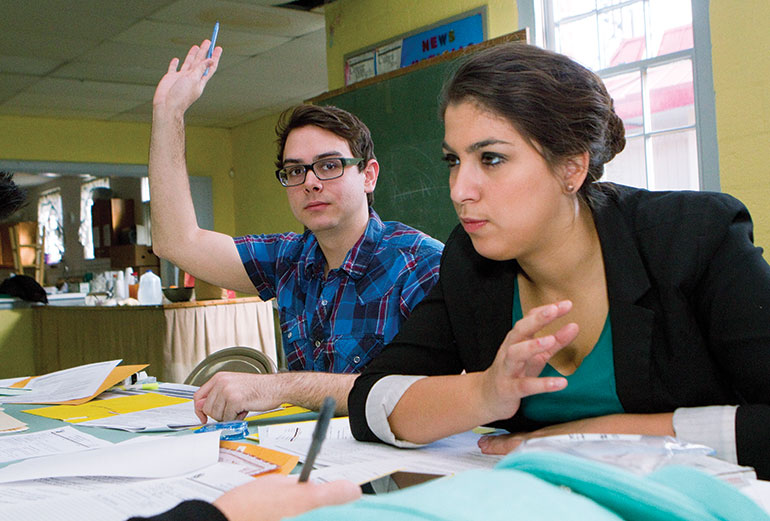
Students interested in a career in social justice find ample support at Vanderbilt. The Social Justice Program offers students a grounding in the theory and doctrine of social justice law through courses, discussion forums and support for faculty scholarship on social justice themes. It also helps ensure students have access to the resources they need to prepare for careers in public interest law. “Beginning a public interest career is very different from going to a law firm in terms of the experience you need to get and the network you need to create with other public interest attorneys while in law school,” said Alistair Newbern, who teaches Vanderbilt’s Appellate Litigation Clinic. “One important aim of the program is to create opportunities for students to build those connections and gain the right experience.”
Each year, the program invites a leader in public interest law to Vanderbilt as the Social Justice Fellow. In addition to giving a lecture and a faculty workshop, the fellow meets with students in one-on-one mentoring sessions. “Students talk to the fellows about everything from substantive law and issues like the death penalty to questions like ‘Should I apply for a clerkship?’ and ‘What classes should I be taking to prepare myself for a public interest career?’ ” Newbern said.
Fellows have included Cecelia Wang, who heads the ACLU’s Immigrants’ Rights Project; Stephen Bright of the Southern Center for Human Rights, who also teaches at Yale Law School; and noted community organizer Oona Chatterjee, co-founder of Make the Road New York. “The Social Justice Fellowship been a great way to bring outstanding attorneys with remarkable careers in public interest law to Vanderbilt to share their expertise with students, faculty and the Vanderbilt and Nashville communities,” Newbern said.

The program also sends students to Yale’s Rebellious Lawyering conference and the Equal Justice Works job fair and hosts speakers from the public interest bar. “Public interest organizations don’t have time or money to train new lawyers from scratch,” Newbern said. “We work to help students connect with national and local organizations where they can take an externship or volunteer to get the experience they need before they go on the job market. Vanderbilt’s legal clinics are an important resource for giving students an opportunity to learn through representing clients.”
Faculty also work with Law Students for Social Justice and other student organizations to connect students with pro bono legal projects during the academic year. This year, several students spent Saturday mornings volunteering at immigration legal clinics run by Tennessee Justice For Our Neighbors. LSSJ volunteers also partnered with the national Election Protection Coalition and other student organizations both to train and serve as nonpartisan poll watchers for the November elections.
The Social Justice Program started in 2008, and professors Daniel Sharfstein and Terry Maroney became faculty co-directors in fall 2012. Sharfstein is a nationally recognized legal historian whose 2011 book, The Invisible Line: Three American Families and the Secret Journey from Black to White (Penguin Press), won two major book prizes. Maroney studies the role of emotion in law and is an expert in juvenile justice. She recently trained new appointees to the federal bench on the role of emotion in judging. Ten additional faculty with a wide range of expertise are also affiliated the program. “Our aim is to ensure that there’s an ongoing dialog about social justice issues in and out of the classroom,” Sharfstein said. “We want to instill a commitment to social justice and prepare students to become effective social advocates.”